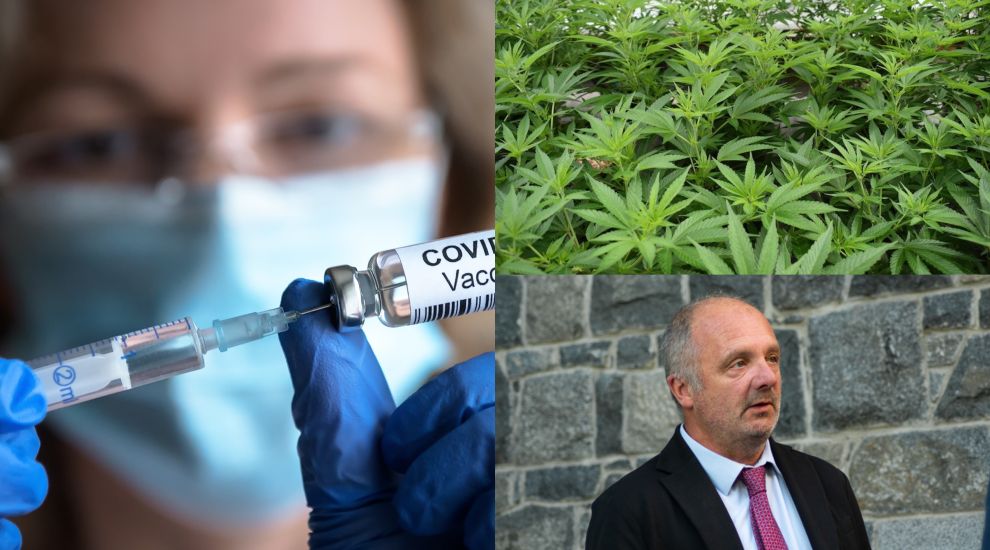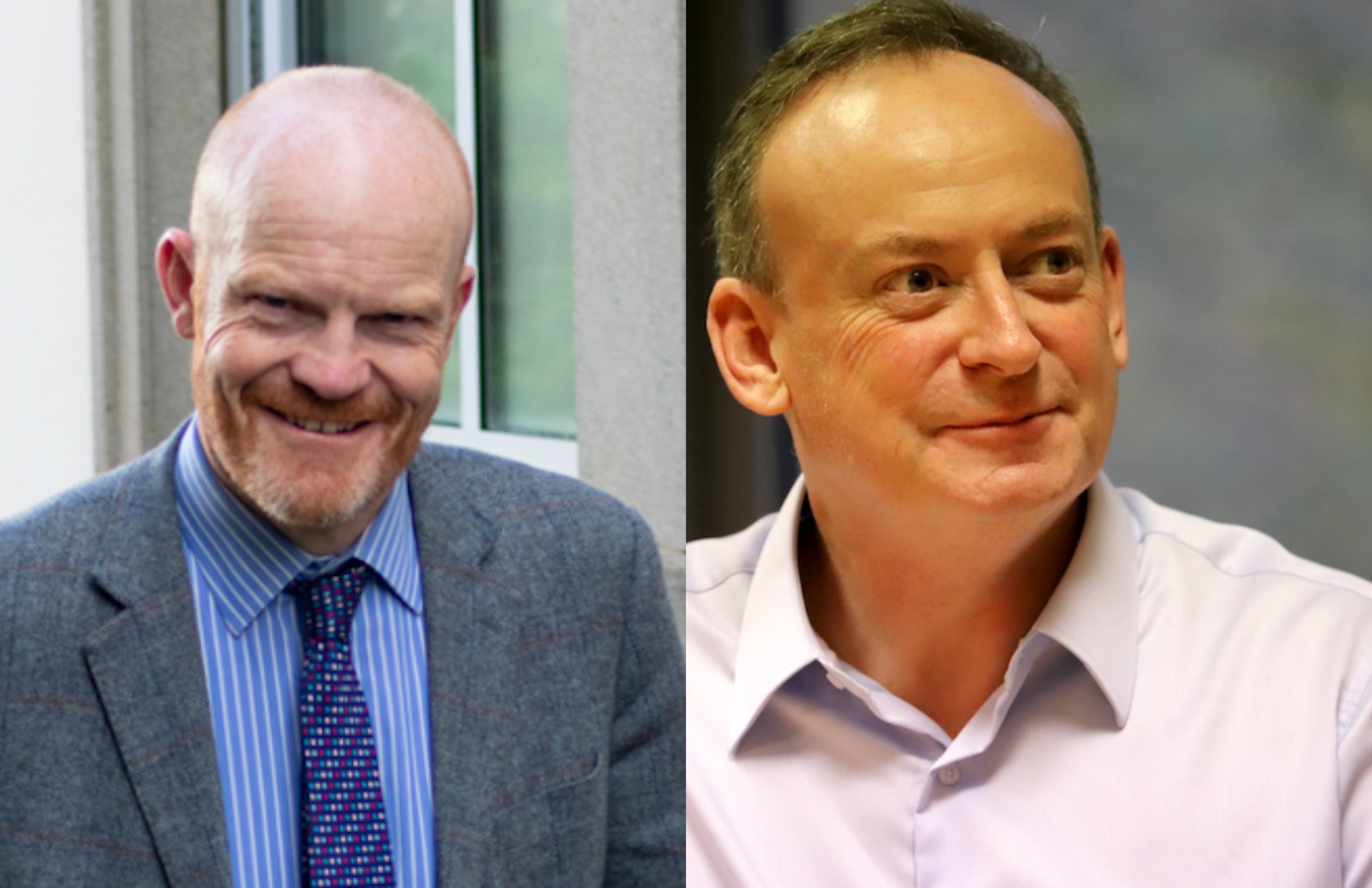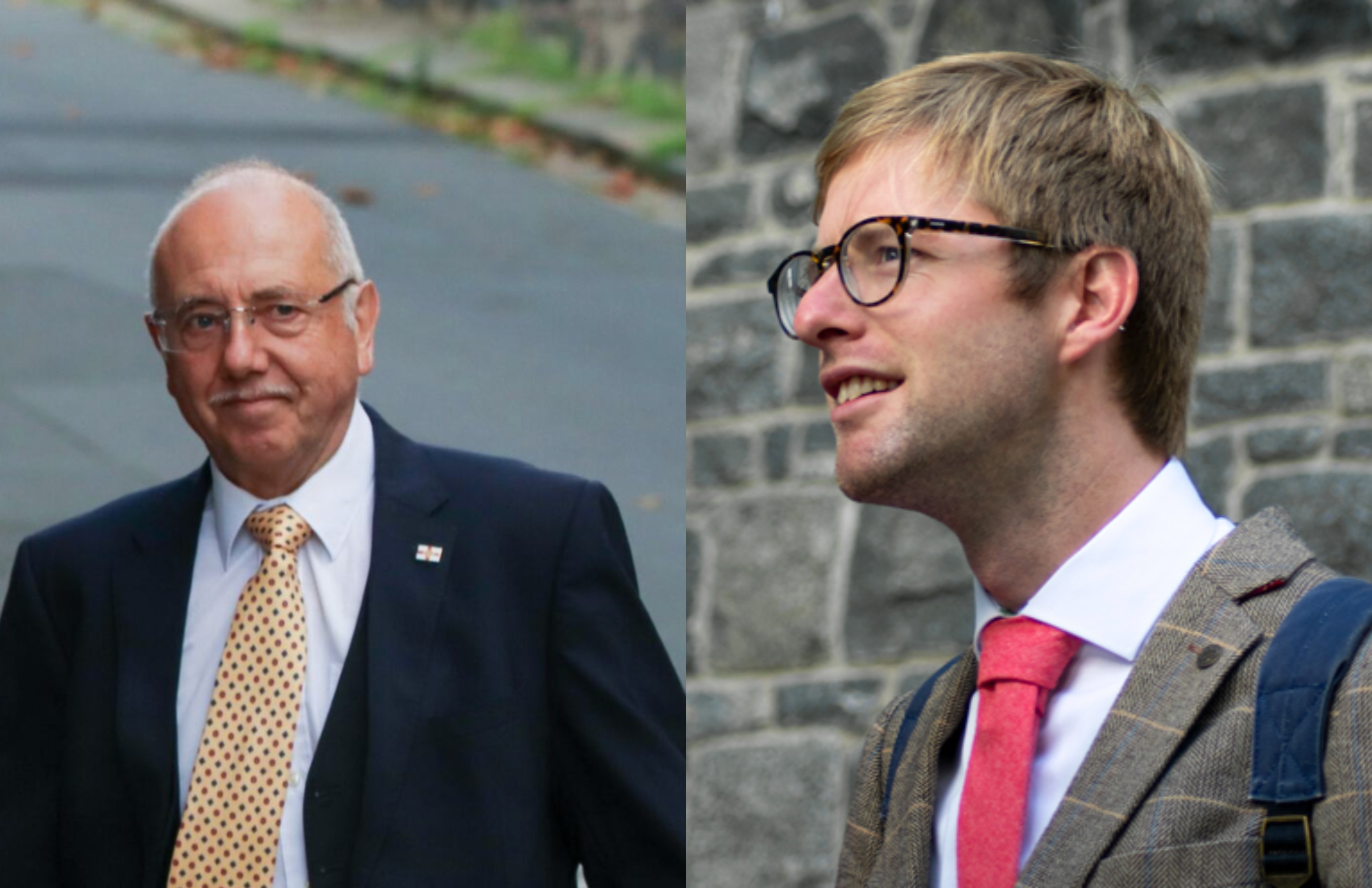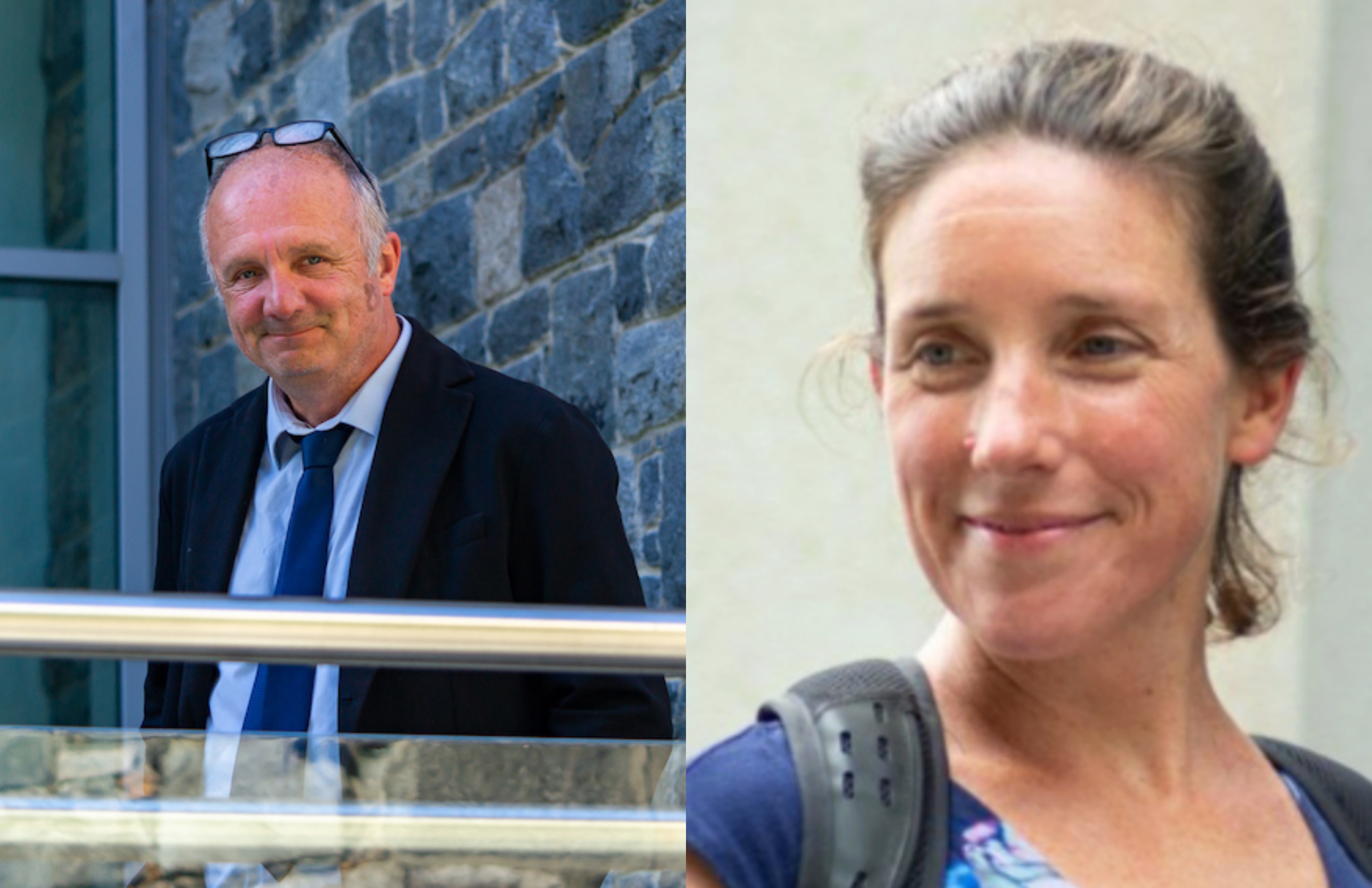


After the lofty heights of the Royal visit, Guernsey’s deputies got down to what they do best yesterday [7 July] by asking each other dozens of questions and arguing about the answers.
The most recent debate began with a familiar prodding of Policy and Resources by Deputy Gavin St Pier who, quite rightly, continues to pursue the quashing of the convictions of a number of local police officers who were arrested during the occupation.
He asked: “In a reply dated 21st February 2024 to a Rule 11 question in relation to the conviction in 1942 of a number of police officers, the Committee advised that, ‘the Law Officers provided their advice, including research using archive records, at the end of last year. The Policy Letter is now being finalised following consideration of that advice. Consultation on the draft Policy Letter is ongoing, with the Committee aiming to publish the Policy Letter during Quarter Two 2024’. Now that we are in Quarter 3, can the Committee please advise when will the Policy Letter be published?”
The President of P&R, Deputy Lyndon Trott, said: “The consultation on the draft policy letter is ongoing. The Policy and Resources Committee are scheduled to discuss the initial outcomes of this consultation and what steps, steps to take next, within the coming weeks." He later added that he would be disappointed if the letter isn’t published by Q3.
He continued to be pressed by Deputy St Pier, who said, “does the President agree with me that, given this issue has been dragging on for the entire length of this term, it is now time to bring it to a conclusion?”
“The short answer is yes,” said Deputy Trott.

Pictured: (L-R) Deputy St Pier and Deputy Trott.
It was then Deputy Andy Taylor’s turn to trigger the revisit of a very familiar topic: Covid. He referred to ‘anecdotal evidence’ that a death in Guernsey had been caused by a covid vaccination.
"With that in mind, can the committee confirm how many deaths in Guernsey have Covid-19 vaccine mentioned on the death certificate?”
The President of Health and Social Care, Deputy Al Brouard, said:
“We have looked at the latest available coded death registrations for Guernsey and Alderney from 2020 to the end of 2023...
“There were no deaths during this period [directly caused by the covid vaccine]... there were more than one, but fewer than five deaths recorded where the covid 19 vaccination is mentioned as a contributory or possible contributory cause.”
When asked if he thought these figures were ‘acceptable’ and whether the Committee were ‘surprised’ with the results, he said that “if you think of the thousands of people on this island and in Alderney and Sark who had the vaccination, to learn that less than five deaths had covid as a ‘possible’ contributory causes... I don’t think that is significant”.
Several other deputies then pitched in, asking about the significance of the figures, the necessity of the vaccine, and the ‘noise around the vaccine’.
"Would the President agree with me that looking at the statistic questioned by Deputy Taylor, it has to be viewed in the context of how many people might have died had there not been a mass vaccination program for covid in place,” said Deputy Peter Roffey.

Pictured: (L-R) Deputy Brouard and Deputy Taylor.
The mental health impact of medicinal cannabis was diluted by questions by Deputy David de Lisle, despite his attempt to try and push HSC towards “immediate legislative change”.
He asked: “With regard to the increase in numbers of individuals requiring inpatient treatment associated with cannabis use.
“Specialist Mental Health Services have raised concerns in the recently published Mental Health and Wellbeing Strategy Annual Report 2023 regarding the increase in the numbers of individuals requiring inpatient treatment associated with cannabis use, including cannabis induced psychosis.
“Given the negative impact the drug is having on individuals, carers and the mental health service here, why is the Committee for Health & Social Care not bringing in immediate new restrictions on the prescribing, distribution and use of medical cannabis?”
The President of HSC, Deputy Al Brouard, said: “Admission data is collected on cannabis association, but what is not captured is if the cannabis is prescribed to the individual, illicitly diverted to someone, or illicitly imported...
“Whilst there has been no significant increase in the total number of admissions to Crevichon Ward it must be acknowledged that there has been a marked increase in such admissions where cannabis is quoted as an associated rather than causative factor since the introduction of medical cannabis...
“[However] the absolute risk of harm among cannabis users is low, even with heavy or daily use. 94% of heavy or daily use users of cannabis do not experience psychosis.
“There are existing safeguards built into the prescribing system around recording and reviewing information on the patients and their prescriptions, as prescribers and pharmacists are regulated and act in accordance with controlled drug legislation.
“Nonetheless, the Committee is equally concerned about [an] increase, and it is looking at what additional approaches can be put in place to address these concerns, which includes looking at prescribing practice, and it is important that we find a robust and deliverable solution.”
Following further questioning, the premise that medicinal cannabis was leading to an increase in admissions to the Crevichon Ward was criticised.
“There are four pillars to the Mental Health and Wellbeing Strategy, understanding and collating datasets, awareness, access and early intervention, service improvements and responding to recommendations of external reviews,” began Deputy Marc Leadbeater.
“The recent report on the mental health and wellbeing strategy is the first iteration which only reports on the first pillar of the strategy, collating and understanding data.
“So does the President agree with me the data in respect of substances associated with emissions to Crevichon has not previously been routinely collected by HSC so the stats presented in this first report on pillar one have been put together by manually interrogating historic patient records in order to make a judgment as to whether or not cannabis may have been associated with any admissions
“Patients may have used cannabis and potentially other drugs and alcohol too at some point prior to their admissions. And so given that overall admissions have remained fairly static, say, for 2020 when they were around 50% higher than reported today, there is no evidence to suggest that cannabis is contributing to higher rates of admission to secondary mental health services.”

Deputy Steve Falla then kicked a hornet’s nest by asking questions about Guernsey’s Strategic Land Use Plan (SLUP).
He wanted to know what circumstances would lead to it being reviewed, whether it should be reviewed, and will the Committee for Environment and Infrastructure commit to reviewing it to facilitate opening up brown field sites.
He argued the current processes were too difficult for the public to utilise properly.
The President of E&I, Deputy Lindsay de Sausmarez replied:
“The Committee would consider reviewing the SLUP earlier than 2031 if evidence suggested that the State's objectives related to land use were no longer being met.
“The Committee has examined the evidence with respect to the effectiveness of the SLUP as required under the Land Planning and Development Law, which to date, has shown that SLUP continues to support the delivery of the state's priorities.”
She suggested that many people misunderstood SLUP and should take the time to read it.
It ended fairly painfully, with an increasingly frustrated Deputy de Sausmarez asking Deputy Neil Inder to take back a ‘neck slicing action’ while she was answering his question on a lack of development in the island.
“If Deputy Inder had been paying any attention at all, he would know that we've been talking about nothing else.
“... Oh, he's just done a neck slicing motion at me. I do hope he takes the opportunity to withdraw that.”
Deputy Inder responded, “with the greatest respect, you know, Deputy de Sausmarez has a style about her in which she blames everyone else.
“She's been angry all the way through her questions and... condescending and patronising and... I don't think it's reasonable that we sit here and take it.
"But I will withdraw the silly remark that I made.”
The Chamber was then reprimanded by the Bailiff, who reminded them to treat each other with respect.

Pictured: (L-R) Deputy Inder and Deputy de Sausmarez.
Deputies were then schooled on Hemlock Water Dropwort, which is a highly poisonous weed that is thought to have established itself at Saumarez Park.
Deputy Falla asked: “Is the Committee for the Environment & Infrastructure aware that a large area of the highly poisonous invasive weed Hemlock Water Dropwort has become well established on an area of land directly adjacent to the children’s playground at Saumarez Park and are there any plans to tackle this health and safety issue?”
In response, Deputy De Sausmarez said: “The Noxious Weeds Guernsey law 1952 states that an occupier of land must not allow noxious weeds that are in flower or seed to grow on that land.
“Its principal purpose is to protect grazing animals and agricultural land across the island, rather than being a public health requirement. The guidance published by the States of Guernsey advises that the best method of control for Hemlock Water Dropwort is the cutting of the stem before plants flower. I am assured that this is the general policy applied by the land management service. The site has been inspected and a small number of hemlock water droplet plants were found which will be cut back as soon as possible.
“It was also noted that there was a large area of Fool’s Watercress, which may have been misidentified as Hemlock Water Dropwort.”
More questions were then asked about safety of the area near to the park’s play area and it evolved into a debate about whether it's better to spray weeds or cut them.
Deputy Lester Queripel drew the questioning period to a close by asking about the incarceration of people from the UK.
“Five young Londoners were recently caught trying to smuggle £30,000 worth of illegal drugs into the island and are consequently, now serving sentences of between 4 and 6 years here in our jail, at great expense to the taxpayers of the Page 3 of 5 Island,” he began.
“I’m sure there is a perfectly valid reason as to why they are serving their sentences here on the island, so can Deputy Prow please relay the reason to me as to why they can’t serve their sentences in the UK, as opposed to here in Guernsey?”
In response, the President of Home Affairs, Deputy Rob Prow, said: “When an individual commits a crime, they face the legal consequences of that jurisdiction’s laws, as such an individual who receives a custodial sentence as a result of an offense committed and tried in the Bailiwick would commence serving their sentence at Les Nicolles... where a prisoner is unlikely to be able to resettle in the Bailiwick on release, current policy is that they are transferred to the to their own jurisdiction.
“The lack of prison accommodation in England and Wales at the moment is a barrier to relocation."
Comments
Comments on this story express the views of the commentator only, not Bailiwick Publishing. We are unable to guarantee the accuracy of any of those comments.